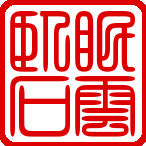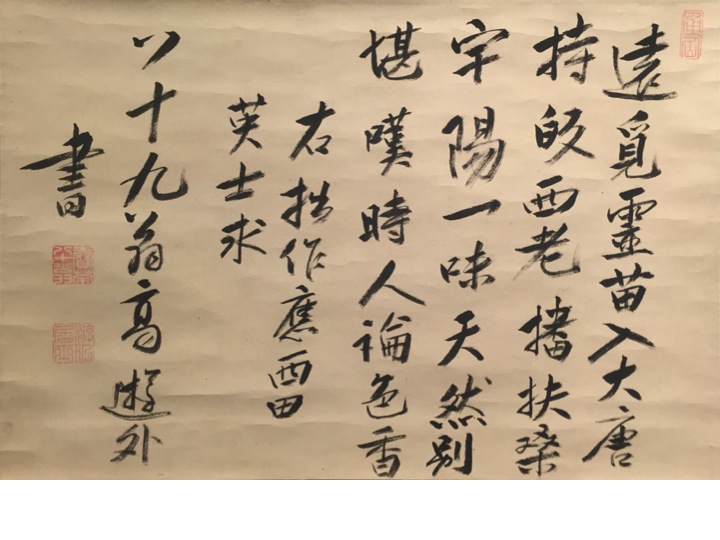Baisaō’s Verse on Tea
Kō Yūgai of the Edo Period
Verse on Tea
Going far to China in search of the sacred shoots
Old Eisai brought them back to sow in our land
The taste of Uji tea is imbued with Nature’s essence
Worthy of pity, people talk only of color and scent
Awkwardly done at the request of Nishida Eishi
Written by the eighty-nine year old man, Kō Yūgai
江戸時代 高遊外
茶詩
遠息靈葡入大唐
持歸西老播狀桑
宇陽一味天然戮堪
嘆時人論色香
右拙作應西田英士求
八十九翁 高遊外書
Kō Yūgai 高遊外 was a tea seller who lived in Kyoto during the eighteenth century. At the age of eleven, he became a novice at a Zen monastery affiliated with the Ōbaku sect and took the religious name Gekkai Genshō 月海元昭. After decades as a monk in Kyushu province, he moved to Kyoto where he made a living selling tea, adopting the name Baisaō 賣茶翁, Old Tea Seller. He frequented the scenic spots around the ancient capital, preparing and serving tea to passersby, never charging them but always accepting donations. In his eighties, when he could no long carry his equipage, he burned his tea case and devoted himself to calligraphy. This work on tea was written in the last year of his life.
Note
Compare Norman Waddell, Baisaō, The Old Tea Seller: Life and Zen Poetry in 18th Century Kyoto (Berkekely: Counterpoint, 2008), pp. 118-119.
Figure
Kō Yūgai 高遊外 (1675–1763)
Verse on Tea, 1763
Japan: Edo period
Hanging scroll: ink on paper
41.3 x 27.9 cm.
Saint Louis Art Museum
215:1986


